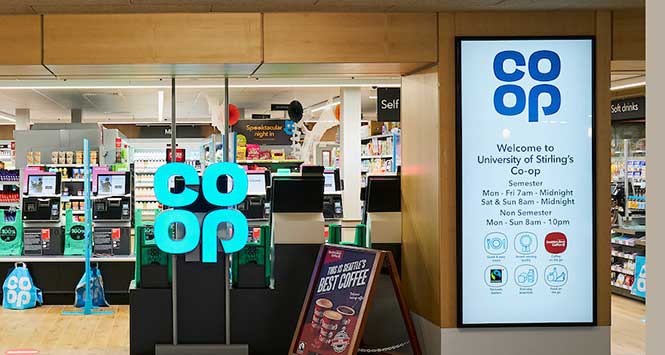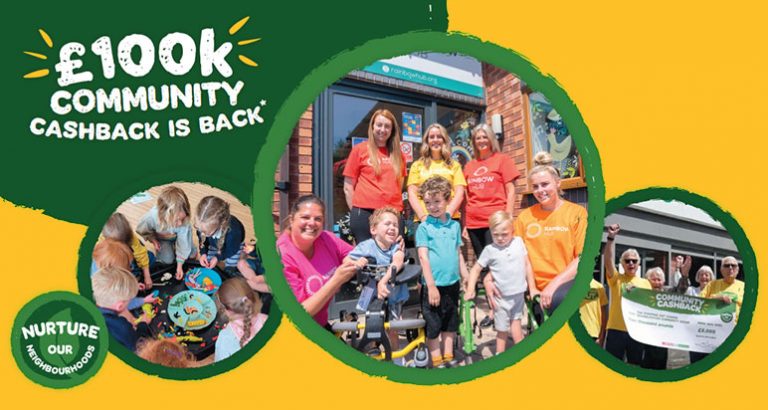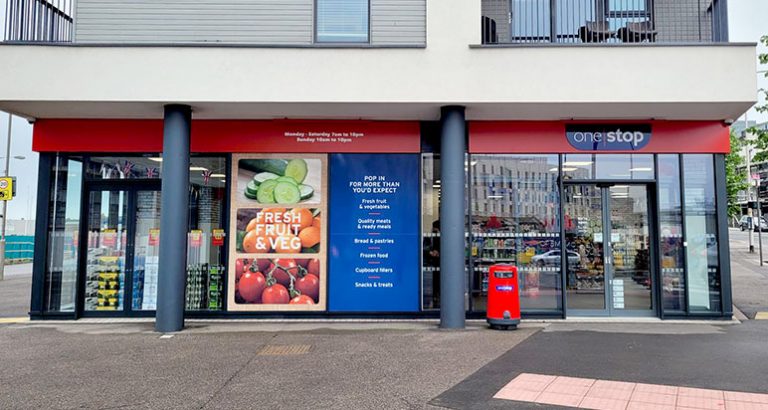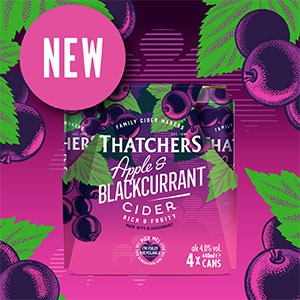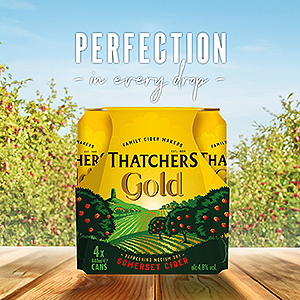Recent weeks have seen a lot of activity from wholesalers and retailers around new franchise and ‘commission operator’ models – so what’s the big idea, and why the sudden rush to find alternatives to the symbol group model?
by Antony Begley
The symbol group model has been the pre-eminent model for binding wholesalers and independent convenience retailers together for some time now, but there are signs that a new trend is emerging. Several retail and wholesale groups have begun trialling new franchise and commission operator models and all at the same time. Co-op opened its first franchise store in Scotland last month, Costcutter has begun converting company-owned stores to Co-op franchises, Nisa is opening Co-op franchises and now even Spar is joining in on the act with Midlands-based wholesaler AF Blakemore recently launching a ‘commission operator’ store in Herefordshire.
So why the sudden rush to find alternatives to the tried and tested symbol group model? One answer to that question is cold, hard cash. Bank funding has largely dried up in retail and store values are rocketing as the Covid effect pushes up sales, profits and, consequently, selling prices. “The reality is that it’s getting harder and harder for independent entrepreneurs to get into convenience retail in the first place,” says Lous Drake, Sales Director at Blakemore Trade Partners. “The capital required these days can be prohibitive for a lot of entrepreneurs, so this model offers a ready-made model to help ambitious entrepreneurs onto the ladder.”
But that’s not the only explanation to why wholesalers and retailers are testing out new models. Co-op has been trialling the franchise store model for around two years and now has 14 franchise stores, the most recent one being its first in Scotland, located on campus at Stirling University. For Martin Rogers, Head of New Channels at Co-op, the franchise model is an attractive one to independent retailers looking to build a chain of stores quickly and efficiently.
The ‘cookie cutter’ franchise model takes a lot of the complexity out of adding new stores because each store is essentially a cut and paste of every other store. Or, as Rogers prefers to put it: “Franchise stores have to look, feel and smell like a Co-op.”
The obvious quid pro quo here is that by demanding high levels of compliance in terms of store design, range, promotional execution and so on, independent retailers lose a lot of the freedom they enjoy running their stores how they see fit – but there is an upside. And it’s a big one. “Of the 14 stores that have become Co-op franchises,” explains Rogers, “the average increase in sales is around 50%” – and it’s worth pointing out that these are pre-Covid increases.
How much control do retailers sacrifice for a shot at huge sales increases? Retailers do retain “some independence around pricing” but high levels of compliance are expected around range, promotions, store look and feel and so on, which is hardly a surprise given that the franchise model marks the first time the Co-op has allowed independent retailers access to the highly valuable Co-op masterbrand.
“So far, the retailers we’ve worked with on the franchise model have been absolutely fantastic and have enthusiastically embraced their role as guardians of the Co-op brand,” says Rogers. “We operate in over 4,000 locations so we have a lot of experience and expertise and that’s what we bring. In return, we expect our franchise retailers to respect and protect the brand which is clearly in their own interests as well as ours.”
As well as bringing their brand and expertise, the Co-op also commits a significant financial commitment towards the refit to ensure the now store does indeed look, feel and smell like a Co-op. Much of the investment, says Rogers, is around tech and branding and a typical refit will see the Co-op contribute around 25% of the cost. There is no upfront fee – unlike other franchise models like Subway, Greggs and Costa – with the key fee being the basic franchise fee, typically a percentage of net sales. This helps incentivise both the independent franchisee and Co-op to maximise sales.
“We take the franchise model very seriously,” says Rogers. “There was a lot of nervousness in the business when we first launched it, as you would imagine, but we’ve seen it work and work well. We’re committed to helping independent retailers grow their business and we’re committed to growing margins because that’s how we both benefit. We offer a 24 hour, 365 days a year account management service to our franchise retailers and we’re always available.”
According to Rogers, there are no hard and fast rules around who can become a Co-op franchisee, but the only two ways in currently are through Nisa (which Co-op owns) or Costcutter (which has Co-op as its exclusive supplier).
Commission operators
But it’s not just franchise models that are seeing some frantic activity at the moment. So-called ‘commission operator’ models are starting to gain traction in convenience. The model isn’t new in itself as it’s commonplace in the forecourt sector with companies like MFG relying on it, but it’s not a model you come across much in traditional convenience retailing.
“It’s a very popular model in the forecourt sector,” says Blakemore’s Drake. “It’s something we had been looking it for some time but our brand new store in Leominster in Herefordshire is the first company-owned store to operate under the new model. It won’t be the last”.
In basic terms, the store is owned by AF Blakemore but is run by independent retailers. In the case of Spar Leominster, the site is now run by MIH Traders which is owned by Dasitha Gamage and Janaka Watowita.
“The store was formerly operated by Blakemore Retail, our company-owned store division,” explains Drake. “But now it’s being run by Dasitha and Janaka but with the full support of AF Blakemore. It opened on the 7th of September and the early indications are that it is very much performing to expectations and we have high hopes for it.”
So what is the thinking behind the new model? “Essentially, our commission operators will be self-employed entrepreneurial retailers who are seeking to operate their own businesses supported by a successful retail partner. AF Blakemore will own the business, with the commission operators responsible for developing sales and profitability within their stores. In practice, that means we’re freeing the retailers up to focus on what really matters: growing the business.”
AF Blakemore currently services 966 Spar stores, including 277 company-owned stores, with Leominster the only store operating under the new model, but Drake says that more commission operator stores are already in the pipeline and will be announced in the very near future.
Drake is frank about how he expects these retailers to develop in future and fully expects to see retailers migrate into owning their own stores in the future.
He comments: “The commission operator model is a great way to get into this exciting industry in the first place, but we fully expect retailers to outgrow the model. If commission operators start to hit £40k or £50k sales a week, for example, we would expect them to migrate on to buying their own stores, but we would obviously hope to retain them as customers of AF Blakemore in the longer term. But this is our aim. We absolutely want our operators to be successful and make money and we will provide them with all the support and help they need to achieve that success. The commission operator model can be a stepping stone for ambitious entrepreneurs.”
Commission operators enjoy exactly the same terms as Spar symbol operators including on critical issues like pricing and credit terms.
“It’s a very flexible model,” adds Drake. “We allow the operators flexibility in the range they carry, for instance, and they enjoy a a lot of control over how they run their business – but we do expect good levels of compliance, as we do with all Spar retailers. Discipline is key in maintaining the high standards that shoppers expect when visit any Spar store and that’s vital across issues like promotions, pricing, efficient and consistent use of POS and so on, but that doesn’t mean commission operators don’t enjoy a good degree of autonomy in how they run their stores. We view it as the best of both worlds.”


